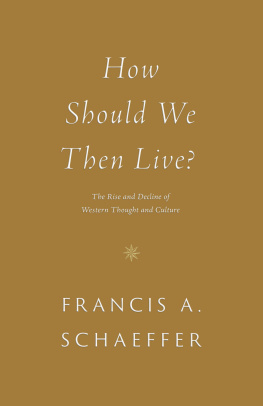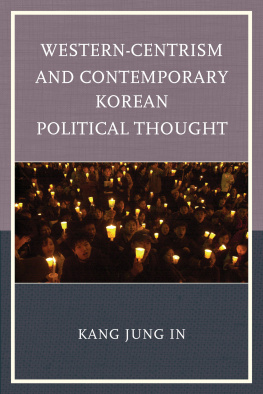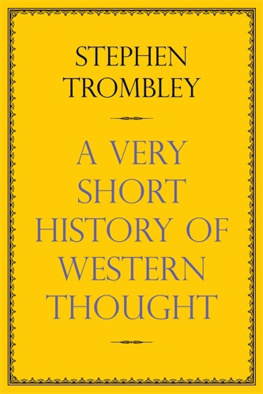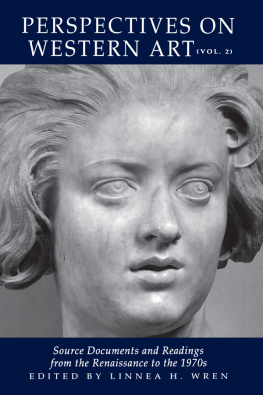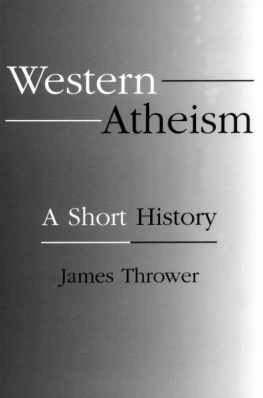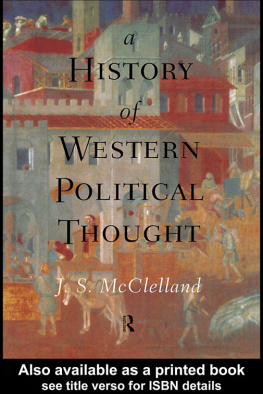The West
A short history of the Western world from the Middle Ages to the present day.
Chapters
- Origins: Medieval Europe
- Renaissance
- Exploration, Conquest and Trade
- Reformation
- Scientific Revolution
- Europe Between the Medieval and the Modern
- Enlightenment
- Industrial Revolution
- Government For the People, By the People
- Empires and Imperialism
- Forging the Modern World
- Cataclysm
- Brave New World
- The Digital Age
- The West Today
Introduction
We all understand what is meant by the West as a cultural concept, even if we cannot define what it means in precise terms. We may also find that we struggle to articulate the impact of the West on the rest of the world. Do we take a balanced view and weigh up the scientific and technological progress it produced against the excesses of colonialism. Or, do we take the view that the West does not merit inclusion in the list of world civilisations?
The aim of this book is to trace the origin of the West as the modern cultural concept that is loosely recognised today. Even if the term civilisation has fallen from favour today I believe it is important to define what we mean by Western values, trace the story of how the west established those values and to set out the positive as well as the negative impacts the west has had on the world.
I do this not because I have any truck with identity politics, nationalism, cultural supremacism or any other abhorrent form of politics. Instead I believe it is important that we understand, preserve and cherish Western values. It was the West after all that gave the world the industrial, technological and digital revolutions, modern secular Government, modern farming techniques and modern medicine. The result of these developments has meant that billions of people across the world survived child birth, were immunised against deadly diseases, do not go hungry, are free from nepotism and state corruption, use that technology that makes their lives easier and earn enough money to give their families a decent standard of living.
Despite these achievements the story of the West is barely taught as a coherent narrative. The values of the West are under threat today from both inside and out on a scale that has not been seen since the end of the second world war. If we do not teach our children about the story of the West then they are unlikely to stand up to defend its values; they may even fall under the spell of homegrown populists are foreign extremists who are determined to roll back liberal values at home and end the western-led rules based global order abroad. This book is intended to serve as a history of the west as a civilisation and also as a rallying cry to fight for the preservation of western values that have surely done more than any other system to change the world for the better.
From our first days at school, we are taught about the accomplishments of ancient civilisations: the Egyptians, the Greeks, the Romans. The achievements of these empires are known to those who have had only the barest acquaintance with world history. Egyptian pyramids, Greek philosophers, and Roman engineering are rightly considered to be treasures of humanity. Yet for the ordinary inhabitant of these civilisations their lot was often illiteracy, hardship, agrarian toil, and relative poverty.
From the beginning of recorded history through to the industrial revolution the material standard of living for ordinary people barely changed, civilisations traded with each other on a limited basis, often via intermediaries and most cultures remained self-contained.
Then, around the year 1500AD, the West began to diverge from the rest of the world. By 1900 Western societies thought differently, acted differently, and lived differently from much of the rest of the world.
Western technological superiority allowed it to control almost the entire globe, either directly or indirectly; the first time a civilisation had achieved a global reach. But Western influence was not limited to colonisation; the West has greatly influenced world culture and society and began the age of hyper globalisation that is still evolving today.
The divergence that started become apparent in around 1500 can be traced to a series of developments that occurred in an area of Europe roughly bordered by the River Oder and the world of Orthodox Christianity in the east and the Mediterranean Sea and the Ottoman Empire in the south. The late medieval kingdoms, dukedoms and principalities that occupied the European peninsula shared a common religious, intellectual and commercial cultures. It was these medieval kingdoms that developed into a collection of nation states sharing certain cultural features which became recognised as representing Western culture.
Whilst it is true, as critics of the West often point out, that there is no agreed formal definition of Western civilisation, Western countries are clearly identifiable in their shared values and features. Broadly, these are democratic and relatively secular government, an independent judiciary and an established rule of law, pluralist societies balanced, the provision of essential services by the state, a free market economy, a rich and diverse artistic and popular culture, and strong scientific traditions.
The set of values underpinning Western civilisation have slowly evolved since 1500 and have been debated, argued and fought for: sometimes by lone voices, sometimes by tens of millions of nameless citizens. Once established these values are what has allowed the West to create a culture that has given the world the computer, the telephone, the television, the radio, the train, the plane, the automobile, pop music, space exploration, mechanical engines, the electric light bulb, democratic government, universal human rights; unequivocally these are inventions and developments that have transformed the way the entire world lives for the better.
Equally the West has been responsible for some of the worst crimes of humanity, from the Atlantic slave trade, through to imperialism, two world wars and the holocaust. Westerners should not ignore these crimes but neither should they be a reason for self-flagellation. The moral choices raised by these issues, catalysed European liberals to argue against them and fight for a world in which human liberty and the right to personal happiness underpin the nation state.
Western liberals have often shied away from celebrating a concept of Western civilisation for fear of being seen to whitewash history or provide a narrative that encourages racism and nationalist supremacist view of history. But such cultural relativism risks creating a culture in the West were its citizens are unaware of how we got to where we are today. Without a clear understanding of the history of the West we risk failing to appreciate the values that are ancestors fought for and which have allowed the world to develop from agrarian feudalism to a world in which most people have access to electricity, running water, medicine, consumer goods and basic human rights.
The West today faces challenges from authoritarian regimes in Russia and China, from Islamic fundamentalism at home and abroad and from home-grown populist nationalists. In the last 500 years the West has, on the balance, created a globalised, more liberal and more prosperous world. It is not the case that this outcome was inevitable; history does not run along a pre-ordained path. If the West had not diverged from other world civilisations in 1500 there is no evidence to suggest that the rest of the world was on a trajectory towards creating democratic, liberal, modern industrial societies in its place.
Without a strong sense of its own history and identity, the West could witness the next 500 years of history being written by retrograde, authoritarian and illiberal forces. That is why the history of the West is important to us all, whoever we are and wherever we live.
Next page

